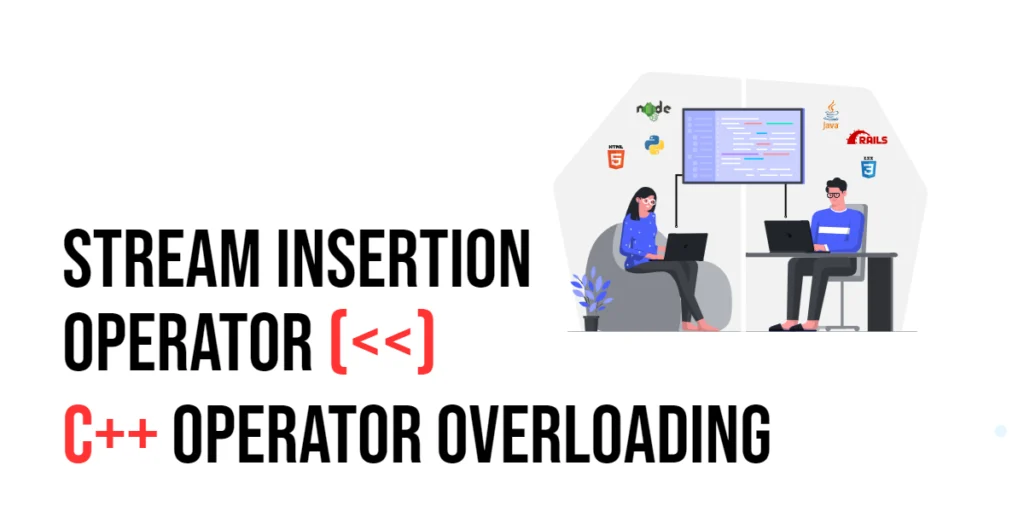Scala, a powerful and versatile programming language, provides a rich set of features for developers to create robust and scalable applications. In this article, we will explore Scala’s relational operators. Relational operators come in handy in comparing values and making decisions based on those comparisons. Let’s explore these operators and how they can be effectively used in Scala programming.
Understanding Relational Operators
Relational operators are essential components of any programming language, allowing developers to compare values and perform conditional operations. In Scala, relational operators evaluate expressions and return a Boolean value, either true or false, based on the specified condition. The commonly used relational operators in Scala include:
- Equality Operator (==): Compares whether two values are equal.
- Inequality Operator (!=): Checks if two values are not equal.
- Greater Than Operator (>): Checks if the left operand is greater than the right operand.
- Less Than Operator (<): Checks if the left operand is less than the right operand.
- Greater Than or Equal To Operator (>=): Checks if the left operand is greater than or equal to the right operand.
- Less Than or Equal To Operator (<=): Checks if the left operand is less than or equal to the right operand.
These operators help you express relationships between values, which is essential for implementing conditional statements, sorting, and other decision-making processes in your programs.
Equality Operator (==)
The equality operator (==) in Scala is used to compare two values for equality. It returns true if the values are equal and false otherwise. Here’s an example:
object CoderScratchpad {
def main(args: Array[String]): Unit = {
val a = 5
val b = 10
if (a == b) {
println("a and b are equal")
} else {
println("a and b are not equal")
}
}
}In this example, the output will be “a and b are not equal” since the values of a and b are different.
Inequality Operator (!=)
The inequality operator (!=) is the counterpart of the equality operator. It returns true if the values being compared are not equal and false if they are equal. Here’s an example:
object CoderScratchpad {
def main(args: Array[String]): Unit = {
val a = "hello"
val b = "world"
if (a != b) {
println("a and b are not equal")
} else {
println("a and b are equal")
}
}
}The output here will be “a and b are not equal” as the strings “hello” and “world” are distinct.
Greater Than Operator (>)
The greater than operator (>) is used to compare if one value is greater than another. It returns true if the left operand is greater than the right operand and false otherwise. Here’s an example:
object CoderScratchpad {
def main(args: Array[String]): Unit = {
val a = 15
val b = 10
if (a > b) {
println("a is greater than b")
} else {
println("a is not greater than b")
}
}
}The output will be “a is greater than b” as 15 is indeed greater than 10.
Less Than Operator (<)
Conversely, the less than operator (<) checks if the left operand is less than the right operand. It returns true if the left operand is less than the right operand and false otherwise. Here’s an example:
object CoderScratchpad {
def main(args: Array[String]): Unit = {
val a = 8
val b = 12
if (a < b) {
println("a is less than b")
} else {
println("a is not less than b")
}
}
}In this example, the output will be “a is less than b.”
Greater Than or Equal To Operator (>=)
The greater than or equal to operator (>=) checks if the left operand is greater than or equal to the right operand. It returns true if the condition holds and false otherwise. Here’s an example:
object CoderScratchpad {
def main(args: Array[String]): Unit = {
val a = 15
val b = 15
if (a >= b) {
println("a is greater than or equal to b.")
} else {
println("a is less than b.")
}
}
}In this exaple, the program will print “a is greater than or equal to b” since both values are equal.
Less Than or Equal To Operator (<=)
Similar to the previous operator, the less than or equal to operator (<=) checks if the left operand is less than or equal to the right operand. It returns true if the condition holds and false otherwise. Here’s an example:
object CoderScratchpad {
def main(args: Array[String]): Unit = {
val a = 25
val b = 30
if (a <= b) {
println("a is less than or equal to b.")
} else {
println("a is greater than b.")
}
}
}Here, the program will print “a is less than or equal to b” as 25 is indeed less than 30.
String Comparison
Relational operators are not limited to numerical values; they can also be used to compare strings in Scala.
object CoderScratchpad {
def main(args: Array[String]): Unit = {
val str1 = "Edward"
val str2 = "Edwin"
if (str1 == str2) {
println("The strings are equal")
} else {
println("The strings are not equal")
}
if (str1 < str2) {
println("str1 comes before str2")
} else {
println("str1 does not come before str2")
}
}
}In this case, the first if statement evaluates to false since the strings are not equal. The second if statement evaluates to true, indicating that str1 comes before str2 in lexicographical order.
Chaining Relational Operators
Scala allows developers to chain multiple relational operators together to create more complex comparisons. This chaining makes it easy to express compound conditions concisely.
object CoderScratchpad {
def main(args: Array[String]): Unit = {
val a = 30
val b = 40
val c = 50
// Chaining relational operators
val isInRange = a < b && b < c
println(s"$b is in the range ($a, $c): $isInRange") // Output: 40 is in the range (30, 50): true
}
}In this example, the && operator is used to create a logical AND condition. The result is a Boolean value indicating whether both conditions are true.
Pattern Matching with Relational Operators
Scala’s powerful feature, pattern matching, can also be used in conjunction with relational operators. This allows developers to create expressive and readable code when dealing with complex data structures.
object CoderScratchpad {
def main(args: Array[String]): Unit = {
val score = 100
val grade = score match {
case 100 => "A+"
case x if x >= 90 => "A"
case x if x >= 80 && x < 90 => "B"
case x if x >= 70 && x < 80 => "C"
case _ => "D"
}
println(s"Score: $score, Grade: $grade") // Output: Score: 85, Grade: B
}
}In this example, we use the match statement to perform pattern matching based on the value of the score variable. This concise and expressive syntax enhances the readability of the code.
Conclusion
Relational operators are fundamental building blocks in Scala programming, enabling developers to compare values and make decisions based on those comparisons. Understanding how to use these operators is essential for writing clear and concise code. Whether you’re comparing numeric values or strings, relational operators are essential in the logic of your Scala programs.
Source:







